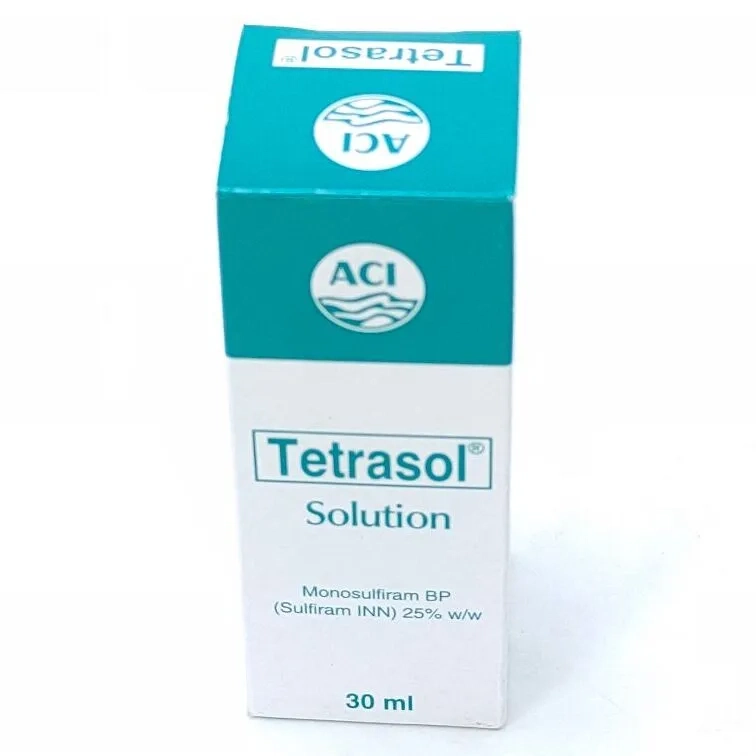Tetrasol Uses, Dosage, Side Effects and more
Tetrasol, is an ectoparasiticide used in the treatment and prevention of scabies.

| Attribute | Details |
|---|---|
| Trade Name | Tetrasol |
| Generic | Monosulfiram |
| Weight | 25% |
| Type | Solution |
| Therapeutic Class | Parasiticidal preparations |
| Manufacturer | ACI Limited |
| Available Country | Bangladesh |
| Last Updated: | January 7, 2025 at 1:49 am |
Uses
Tetrasol solution is a parasiticide, active against the burrowing mite Sarcoptes scabiei. It is used for the treatment and prophylaxis of scabies.
Dosage
Before application Tetrasol Solution should be diluted with two to three parts of water. The patient's body should be liberally washed with soap and water and thoroughly dried. Apart from face and scalp, the entire body should be painted with the dilute solution, which is rubbed well in and left to dry. About ten minutes is allowed for the skin to dry naturally and the patient then dresses. Application is suitable for use in clinics dealing with children. In difficult cases this routine may be repeated successively for two or three days. These instructions are applicable to adults and children.
How Long Does It Take to Work?
How Long Does It Take to Work? see here Tetrasol
Side Effects
Very few side-effects occur with Tetrasol Solution even in cases of undiluted application. A few cases of erythematous rash considered as idiosyncratic response have been reported.
Interaction
There are no known drug interactions and none well documented.
Pregnancy & Breastfeeding use
Pregnancy Category is not Classified. FDA has not yet classified the drug into a specified pregnancy category.
Contraindication
Known idiosyncratic response to its application. The solution should not be applied near a naked flame. Because of the close chemical relationship between monosulfiram and disulfiram, it is advisable to abstain from alcohol before and for at least 48 hours after the application of Tetrasol
Acute Overdose
The solution contains alcohol and monosulfiram, and if ingested this combination will produce a severe reaction with flushing, dyspnoea, headache, dizziness, nausea, vomiting, drowsiness or sleep. Tachycardia and hypotension may also occur and the resultant myocardial ischaemia may be fatal. Symptomatic measures are required supply of oxygen, if dysponea is excessive, and control of the blood pressure. Other treatment which has been found useful includes application of cardiac stimulants, intravenous iron, ascorbic acid and nicotinamide, adenine and intravenous sodium thiosulphate.
Storage Condition
Store at room temperature (below 35° C). Tetrasol Solution should not be stored in a cold place as this causes deposition of crystals. These can be redissolved by immersing the bottle in warm water. The solution is flammable and should not be kept near naked flame. Water is a suitable diluents for Tetrasol.



